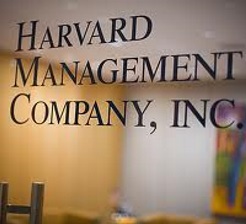8-29-16 Bloomberg News: Wall Street Redoubles Fight to Manage $100 Billion at Endowments
by charles | Comments are closed08/29/2016
8-29-16 Bloomberg News: Wall Street Redoubles Fight to Manage $100 Billion at Endowments
Read More »The Harvard Management Company: Size Really Does Matter
by charles | Comments are closed08/29/2016
[Note: we published this piece on August 29, before Harvard announced its hire of N.P Narvekar and its disappointing returns for FY2016]
In asset management, as in other endeavors, size really does matter.
Bigger is better. But growth in AUM drives growth in headcount and complexity; and that can overwhelm existing structures and challenge management.
A few weeks ago in “Crunch Time for the Harvard Endowment” we referred to HMC’s hunt for a new “CIO” although, technically, the top job at HMC is “CEO.”
See: https://www.charlesskorina.com/crunch-time-harvard-endowment/
In this niche that’s often a distinction without much difference, and we tend to use “CIO” generically; but for Harvard there’s a real challenge behind that equivocation.
A CEO, in proper corporate-speak, manages people, structure, and processes. A CIO, of course, develops and executes investment strategy to maximize returns.
The HMC board hopes to find a candidate who is both an outstanding investment strategist and a proven, effective manager – a CIO and a CEO.
Read More »9-28-16 Washington Post: One big reason Harvard isn’t so great
by charles | Comments are closed08/29/2016
9-28-16 Washington Post: One big reason Harvard isn’t so great
https://www.washingtonpost.com/news/business/wp/2016/09/28/one-big-reason-harvard-isnt-so-great/
Read More »8-08-16 Pensions & Investments: Harvard CEO’s resignation places cloud over strategy
by charles | Comments are closed08/08/2016
8-08-16 Pensions & Investments: Harvard CEO’s resignation places cloud over strategy
Read More »Crunch Time for the Harvard Endowment:
by charles | Comments are closed08/04/2016
[Note: we published this piece on August 4, before Harvard announced its hire of N.P Narvekar and its disappointing returns for FY2016]
The hunt is underway for a new CEO at the Harvard Management Company. And chairman Paul Finnegan and his board intend to get it right this time.
Counting interims, they’ve now had six CEOs at their shop since Jack Meyer departed in 2005, and mostly mediocre returns to show for it.
After Mr. Meyer’s departure it took a one-year search to land Mohamed El-Erian, who then lasted less than two years before he moved to PIMCO. Now, Stephen Blyth has departed after just 18 months on the job.
It looks like this search will be briefer. Some sources say they may have someone aboard by September. But in any case the board needs to set a new course with a new leader.
Last month, before Mr. Blyth’s resignation was announced, we looked at Harvard’s performance (especially versus Yale), and suggested that it might be time for HMC to undertake a major re-think of its business. Maybe their vaunted “hybrid model” is no longer viable.
See: https://www.charlesskorina.com/harvard-endowment-hmc-time-reassess/
We did not expect to be revisiting the subject so soon, but events have overtaken us. So here we are again.
What’s on the board’s mind?
Mr. Finnegan, who became HMC chairman late last year, is a private equity investor and we note that Harvard also announced — in an unusual year-ahead notice in May — that David Rubenstein of PE giant Carlyle Group would be joining the Harvard Corporation board in 2017.
See: http://harvardmagazine.com/2016/05/harvard-appoints-david-m-rubenstein-senior-governing-board
Add to this a statement from Mr. Finnegan on July 27 that HMC going forward would lean more on outside money managers “who have the resources, skill and experience.”
Taken all together, this portends a shift — or at least a tilt — from HMC’s “hybrid” structure to something closer to the Yale “purebred” model. And Yale, incidentally, has been cleaning Harvard’s clock in private equity for years.
See: https://www.charlesskorina.com/wrangling-unicorns-yale-celebrates-vc-heroes/
If internal management of public-market assets, which was Mr. Blyth’s forte, is to be de-emphasized, then it would make sense to look at successful big-endowment CIOs who are already executing such a mostly-outsourced and alternatives-heavy model.
Read More »

